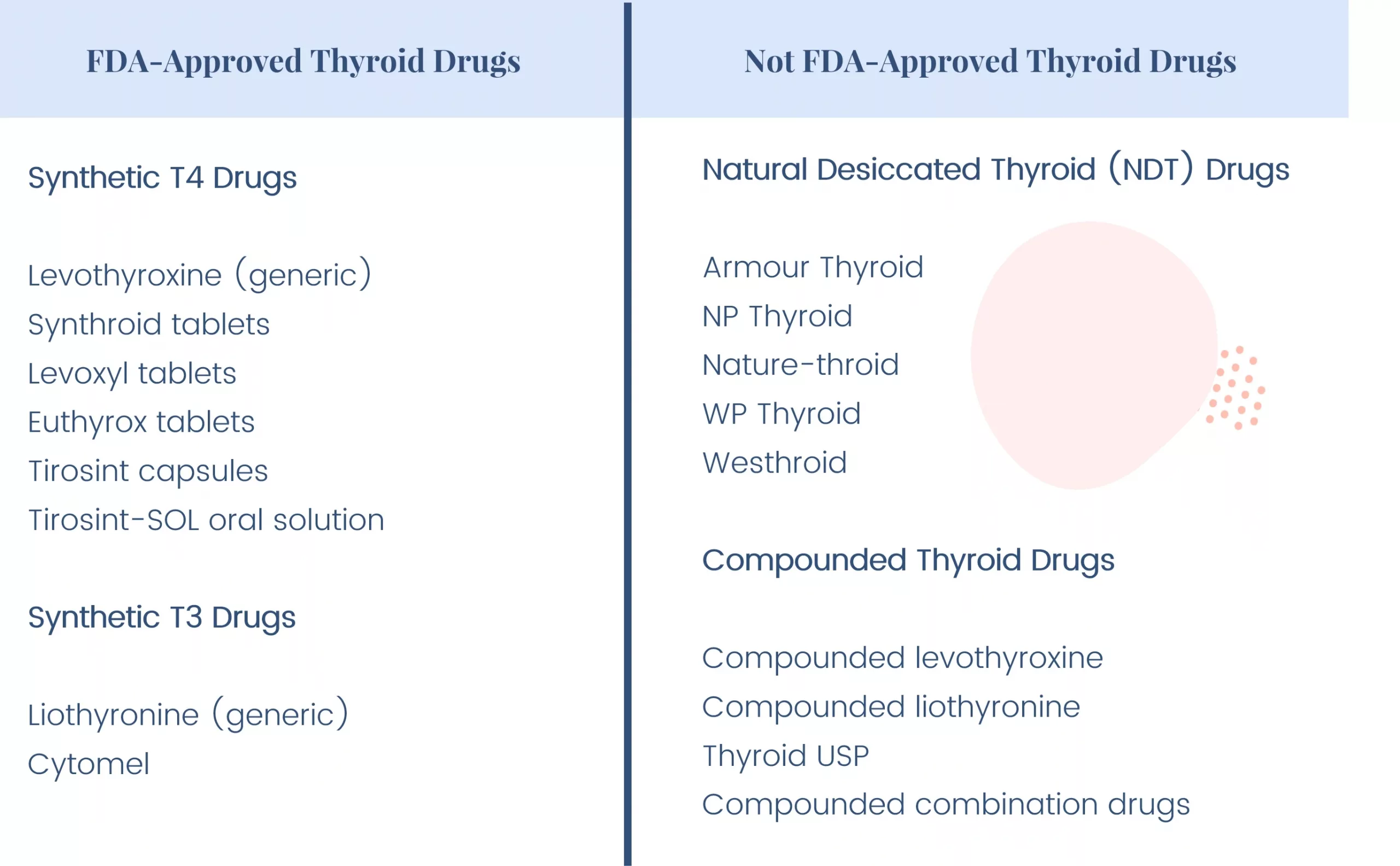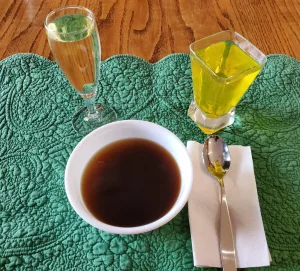Meds That Feel Nearly the Same—But Not Quite
Here’s a tiny confession: when I was first navigating my own thyroid rollercoaster, I assumed all those “natural thyroid” meds were kind of like generic peanut butter. Sure, the label looks different, but hey—it’s all just peanuts, right? Uh…not exactly. Let’s talk NP Thyroid vs Armour Thyroid and the little details that can (really!) change everything about your day-to-day life.
Seriously, one subtle mistake almost everyone makes? Treating these meds like clones. But your body? It notices the little stuff—sometimes in big, dramatic ways.

Why People Switch—Or Think About It
What Makes Us Second-Guess?
Have you ever just…felt “off”, even when your bloodwork looks fine? Maybe the fatigue still drags, or your skin hasn’t gotten the message you’re supposed to be “normal” again. More than a few friends in my thyroid group chat have told me about switching from Armour to NP (or vice versa), desperate for that little spark—less brain fog, less hair clogging the drain, a bit more “oomph” in the afternoon, you know?
The wild part? Sometimes that simple swap does make a surprising difference—even if both meds are the “same kind” on paper. (restartmed dives deeper on this if you want nerdy deets.) It’s weirdly personal—your body, your digestion, your weird reactions to fillers nobody warned you about.
Spotting Your Own Signals
Quick test: is your current med giving you…
| Symptom | Could be time for a change? |
|---|---|
| Cranky stomach, bloating, weird bathroom issues | Maybe! Filler sensitivity is sneaky |
| Persistent fatigue, especially post-dose | Possibly |
| Skin, hair, mood shifts that stick around | Yup—inactive ingredients can sometimes play a role |
| Labs “look okay” but you’re not | Classic story for lots of us |
Don’t ignore these. Your doctor can help you pin down if a switch makes sense—or if you need a bigger thyroid med overhaul.
The Roots: What Are These Meds, Really?
Desiccated? Pig Thyroid? What?!
Okay, let’s just say it: NP Thyroid and Armour Thyroid sound a little medieval. Both are what’s called “Natural Desiccated Thyroid” (NDT). Translation: they’re made from dried, ground-up pig thyroid glands. If you’re grossed out, you’re not alone. But for a lot of people, these meds feel closer to “real” thyroid balance than synthetic-only pills like levothyroxine—or, as my grandma calls it, “that blue one.”
That’s because, unlike synthetics, these piggy pills supply both T4 AND T3, the two main thyroid hormones your body needs but might not make well on its own. (There’s science-y stuff about why some people don’t convert T4 to T3 very well—but bottom line, if you’re still feeling blah on synthetics, desiccated options are worth asking about.)
Same Hormones—So Why Isn’t Everyone Thrilled?
So, if both NP Thyroid and Armour Thyroid have the same active ingredients—T4 and T3 in pretty much the same quantities—why the drama when you switch? It’s the inactive ingredients that start the plot twist.
NP Thyroid has:
- fewer inactive ingredients overall
- maltodextrin, mineral oil, calcium stearate, dextrose
Armour Thyroid meanwhile contains:
- microcrystalline cellulose (a kind of plant fiber)
- sodium starch glycolate
- Opadry white
- calcium stearate
- dextrose
Why does that matter? Turns out, your gut can be picky about fillers. I know a gal who felt puffy and sluggish on Armour—she switched to NP, and within a month, her jeans fit better and she swore her “stomach stopped muttering at her.” All that over a little cellulose and starch, apparently.
What Is It Like (Day to Day)?
How Do You Feel on Each?
This is where things get…fuzzy. I’ve tried both. For me, NP Thyroid felt a little lighter—my energy steadied out faster each morning, and I didn’t get that 2pm crash I’d gotten with Armour. Yours could be the reverse! Some folks swear Armour is smoother, less peaky, maybe because it’s been around forever (hello, 1890s!).
Oh, and dosing is, mercifully, easy to convert: 60mg of NP lines up with 60mg of Armour. No brain gymnastics needed. If you ever want to play with conversions, check out this easy guide: NP Thyroid vs Armour conversion. Bookmark it for dose tweaks—and for conversations with your doc (multi-step math + brain fog = no one’s friend).

The Absorption Game
One reason for differences? The “filler” effect. According to a thorough review on RestartMed’s insights, NP Thyroid’s streamlined formula seems to absorb better for people with sensitive stomachs or digestive quirks. It’s a little thing, unless you’re the one whose mornings ride on whether or not your med is sitting well.
But don’t expect miracles for everyone. It’s a try-and-see deal. If you’ve ever swapped brands—even among leggings!—you know those “identical” ingredients can still mess with your comfort.
Let’s Get Real: Money, Access, and the FDA Side-Eye
Does Cost or Approval Make a Difference?
Natural thyroid meds are prescription-only. But—plot twist—they’re NOT FDA-approved, even though they’ve outlasted most 9-to-5 jobs (and a few exes). This freaks some people out. But millions use these safely, especially if levothyroxine (synthetic T4) just isn’t cutting it for them.
Here’s a not-so-small thing: NP Thyroid is usually cheaper than Armour. Generic meds, less marketing, blah blah. My insurance knocked nearly $15 off my monthly bill when I switched to NP. Good news if you’re budgeting hard and don’t want to have “hypothyroid OR groceries” week.
Curious about what you’d pay? Check the breakdown here: NP Thyroid vs Armour Thyroid cost. It lays out the numbers in plain English—trust me, it’s easier than calling four different pharmacies and playing phone-tag with billing.
| Brand | Typical Monthly Cost | Main “Pros” | Main “Cons” |
|---|---|---|---|
| NP Thyroid | $20–$35 | Less expensive, fewer fillers, decent availability | Some reported taste/odor issues |
| Armour Thyroid | $35–$60 | Old-school trusted brand, wide doc familiarity | More fillers, more $$, sometimes harder on insurance |
Possible Hiccups and Honest Highs
Side Effects: Are They Different?
Let’s keep it real: both can give you the “usual suspects” of thyroid overmedication if you overshoot your dose. Think anxiety, palpitations, headache, maybe “surprise” weight loss. (Not as fun as it sounds. Trust me.) Both kinds can also trigger temporary hair loss or mood swings, but—again—it’s the fillers that sometimes surprise people. If you’re sensitive to certain food additives or plant fibers…that’s where the devil hides.
Some respected clinical looks, like what you’ll find at this NIH journal comparison, note slightly more reported side effects with Armour compared to the synthetic-only levothyroxine crowd. But the numbers are small, and—big surprise—real human bodies don’t always read the medical journals before reacting.

What’s Better About “Natural” Options Like These?
Straight-up? They supply T3 directly (not all T4, hoping your body converts it), which lights up the “why do I feel better?” switch for some of us. This is the magic a lot of us notice when labs look normal yet our symptoms stubbornly refuse to leave. You might wake up more refreshed, lose a little of that “mummy” brain, or find afternoon walks less brutal.
The downside? Their potency can vary—a batch of NP might hit slightly stronger (or weaker) than a batch of Armour. They’re not as precisely standardized as synthetics…yet millions find the trade-off worth it.
The Bottom Line—And Your Next Move
So, after all that: NP Thyroid vs Armour Thyroid isn’t just a pharmacy swap. Both are porcine-sourced, both bring that T3-and-T4 power combo, both can help people with hypothyroidism who just aren’t getting what they need from “plain” levothyroxine. But even a tiny swap—say, from microcrystalline cellulose to plain maltodextrin—can mean happier guts, calmer minds, cheaper co-pays, or fewer unpredictable “off” days.
I know thyroid life is rarely simple. If you’re stuck in that “I’m fine, but I’m actually just existing” zone, play detective: try the NP Thyroid vs Armour conversion guide to get your measurements right, and eyeball your wallet with NP Thyroid vs Armour Thyroid cost. Then, talk with your doc. Track your mood, your gut, your hair—even your jeans (the most honest feedback system, am I right?).
This stuff isn’t about miracles or quick fixes. It’s about finding your best “new normal”—the doses, the brands, the tweaks that let you live, not just scrape by. Tweak, test, laugh at the bad hair days, and let’s keep sharing what works. Because really…your thyroid doesn’t care about brand loyalty. It just wants balance, and so do you.
So, what’s the most annoying symptom you want to ditch? Hit the comments—or just start the conversation with your provider. You don’t have to figure this out alone, and you might just get your “old self” back sooner than you think.























Leave a Reply
You must be logged in to post a comment.